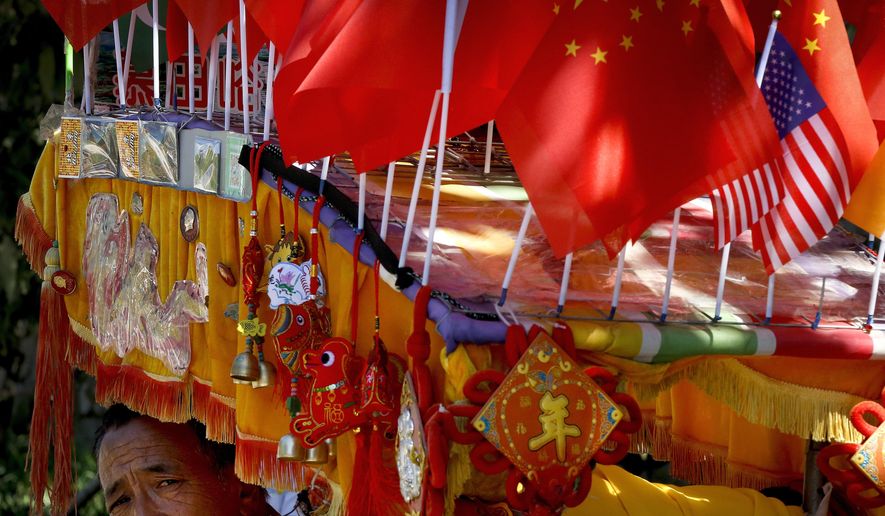WASHINGTON (AP) - The Latest on the Trump administration imposing tariffs on $200 billion more in Chinese goods (all times local):
7:55 p.m.
Several business groups swiftly have condemned President Donald Trump’s plans to impose tariffs on another $200 billion in Chinese imports.
U.S. Chamber of Commerce President Thomas Donohue said, “The U.S. economy runs on pro-growth policies, but that’s not what tariffs on $200 billion worth of Chinese goods deliver.”
The Retail Industry Leaders Association called the tariffs a tax on American families. In a statement the group said, “Consumers - not China - will bear the brunt of these tariffs.”
Likewise, the National Association of Manufacturers said the tariffs risk offsetting the benefits of last year’s tax cuts and urged the administration to resume negotiations with China. The association’s president, Jay Timmons, said in a statement that, “Now is the time for talks - not just tariffs.”
___
7:40 p.m.
Apple and other technology companies avoided a financial threat to the popularity of smartwatches and other wireless devices by persuading President Donald Trump to spare those products from tariffs levied on $200 billion in Chinese goods.
Trump’s concession comes after Apple sent a Sept. 5 letter to the U.S. Trade Representative urging the administration to shield its smartwatch and wireless headphones, which contain parts from Chinese suppliers, from the tariffs.
Apple has particularly big plans for its smartwatch as it tries to transform it from a niche gadget into a medical device capable of taking high-quality heart readings and detecting falls.
Other tech companies also stand to benefit, particularly Amazon and Google, which have been trying to hold down the prices of their internet-connected speakers as part of an effort to get the devices into more U.S. households.
___
7 p.m.
Experts say the Trump administration’s move to slap tariffs on $200 billion more in Chinese goods will only have a modest impact on the U.S. economy, but it represents a setback to hopes the trade dispute was cooling.
Paul Ashworth, chief U.S. economist at Capital Economics, estimates retailers could eat some of the higher cost, limiting price increases to U.S. consumers. And certain items imported from China could instead be purchased from other countries or manufactured in the U.S.
He also noted that U.S. exports to China make up slightly less than 1 percent of U.S. output, which would limit the broader economic impact of any retaliatory tariffs by China on U.S. goods.
JJ Kinahan, chief market strategist for TD Ameritrade, says technology companies seem especially vulnerable to retaliation from the Chinese government, which could include tariffs on components as well as restricting access to websites and services. But he said the new tariffs won’t completely foreclose the possibility of talks between the two sides.
___
6:40 p.m.
The Trump administration is imposing tariffs on $200 billion more in Chinese goods starting next week, escalating a trade war between the world’s two biggest economies and raising prices on consumer goods ranging from handbags to bicycle tires.
The tariffs will start at 10 percent and rise to 25 percent starting Jan. 1.
President Donald Trump decided to begin taxing the imports - equal to nearly 40 percent of goods China sold the United States last year - after a public comment period. China has said it’s ready to impose retaliatory tariffs on U.S. goods.
The U.S. had already imposed tariffs on $50 billion in Chinese imports.
Trump initiated the fight to punish Beijing for what he says are China’s predatory tactics to try to supplant U.S. technological supremacy.




Please read our comment policy before commenting.